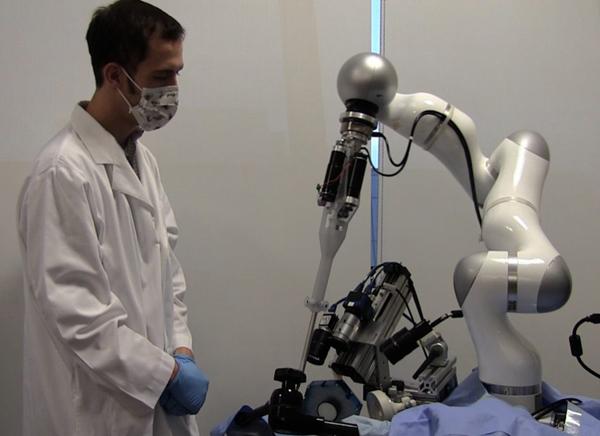You are here
Surgeons not good at predicting benefit from knee operations
By Reuters - Aug 21,2019 - Last updated at Aug 21,2019

Surgeons are no better at determining which patients might benefit from operations to treat torn knee cartilage than if they just flipped a coin, a new study suggests.
Researchers surveyed 194 surgeons to see whether they would recommend surgery or exercise therapy in 20 test cases with middle-aged patients who had tears in the meniscus, the cartilage that works as a cushion between the shin and thigh bones.
Researchers created test cases based on actual patients to see whether the surgeons could accurately predict who would benefit the most, or least, from surgery or from exercise therapy.
Overall, surgeons correctly predicted which patients would benefit from operations only half of the time. And experienced knee surgeons were no better at guessing correctly than other orthopaedic surgeons.
These findings offer one reason these knee operations remain common despite a growing body of evidence suggesting many patients don’t benefit, said Dr Victor van de Graaf, lead author of the study and a researcher at University Medical Centre, Utrecht, in The Netherlands.
“Orthopaedic surgeons believe they are capable of identifying which patients may still benefit more from surgery,” van de Graff said by e-mail. “Therefore, our findings may help to further decrease the number of unnecessary performed surgeries.”
During the operation, a surgeon makes a small incision in the knee and inserts a tiny camera called an arthroscope to view the inside of the joint, locate and diagnose the problem, and guide repairs. Sometimes surgeons remove all of the meniscus, and other times they only remove part of it.
While the procedure is minimally invasive, it’s not risk-free. Patients receive anaesthesia, which in any surgery may lead to complications such as allergic reactions or breathing difficulties. In addition, this specific procedure might potentially damage the knee or trigger blood clots in the leg.
To understand how accurately surgeons could predict patient outcomes, researchers asked a series of questions for each of the 20 patient cases. They asked whether patients should get surgery or physical therapy; what amount of improvement or deterioration would be expected in function after two years; and what level of function patients would have if they went with the treatment surgeons didn’t recommend.
Surgeons were more likely to make correct predictions about who would benefit from knee operations or physical therapy, but more likely to be wrong about which patients would not benefit from the treatments.
Among patients who didn’t respond to surgery, only 39 per cent of the surgeons correctly foresaw this outcome. And among patients who didn’t respond to exercise therapy, only 29 per cent of surgeons correctly predicted this outcome.
For patients who did benefit from surgery, surgeons correctly predicted this outcome 60 per cent of the time. And for patients who benefitted from physical therapy, surgeons correctly chose this outcome in 72 per cent of cases.
One limitation of the study is that the 20 sample cases presented to surgeons don’t reflect how surgeons would interact with patients and make treatment decisions in real life, the study team notes in the British Journal of Sports Medicine.
Very few surgeons asked to participate in the study agreed to do so, and it’s possible the results don’t reflect what would happen with a larger group of surgeons.
But given how poor the participating surgeons were at guessing who might benefit from surgery, it makes sense for patients to only consider this option when physical therapy doesn’t work, the study team writes.
Another study concluding that it’s impossible to predict who might benefit from arthroscopic meniscus repair surgery.
Kenneth Pihl of the University of Southern Denmark in Odense and his colleagues built a model based on the real-world outcomes after one year for 641 patients who had undergone the surgery. Out of 18 preoperative factors that surgeons and the medical literature consider predictive of who will benefit, none predicted the actual results for these patients, Pihl’s team found.
Related Articles
Surgery, a profession filled with great hands, quick minds and big egos, may have a new star in its midst.The Smart Tissue Autonomous Robot
AMMAN — Cancer treatment using immunotherapy drugs is now available in Jordan after being approved by the concerned authorities, giving more
Frail patients are more likely to have serious complications after elective outpatient surgery than people who are healthier and stronger, a


















